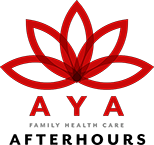Policy
Our general practitioners and other members of the practice team have a professional obligation to ensure they understand our patients and that the patients understand any verbal instructions or written information.
Patients who do not speak or read English, who are more proficient in another language, or who have special communication needs are offered the choice of using the assistance of a languageservice to communicate with the general practitioner/clinical team member.
Our practice team is aware that alternative modes of communication may be used by our patients with a disability, and we endeavour to inform ourselves of how to access and use these services or technology to achieve effective communication with these patients.
The practice also considers the communication needs of carers and other relevant parties.A contact list of translating and interpreter services and other communication services for patients with a disability is maintained, updated regularly and readily available to all members of the practice team. This includes the National Relay Service (NRS) for patients that are deaf and the Translating and Interpreter Service (TIS) Doctors Priority Line for patients from a non- English speaking background.
Procedure
Once we have determined that a patient may have special communication needs, patient consent to use communication assistance is obtained and this consent is documented.
The patient may consider that a family member or friend could interpret at the consultation; however, a member of the patient’s family or a friend of the patient may not be a suitable translator, especially for sensitive clinical situations or where serious decisions have to be made; the use of children as interpreters is not encouraged.
Qualified medical interpreters are our preferred option and their use is encouraged. Some of our practice team members are bilingual and can act as an interpreter if the patient consents.
The patient’s nominated interpreter or any professional services that have been used are noted on the patient’s health record which provides for an alert to the practice team to make prior arrangements for future consultations and treatments.
The translating and interpreter services and other communication services commonly used by this practice include:
- Department of Social Services which provides free telephone interpreting services for general practitioners when providing Medicare claimable consultations in private practice:
- Doctors Priority Line (available 24 hours a day, seven (7) days a week)
- Translating and Interpreting Service (TIS National)
- On-site interpreting service (subject to interpreter availability), and
- Information on these services is available at www.dss.gov.au/free-interpreting or by calling 1300 575 847.
- www.healthdirect.gov.au which provides helpful educational material for patients on a range of clinical conditions in a variety of languages.
Each of our general practitioners is registered with the interpreter service and allocated a code number. Registrations are renewed annually to ensure quick access when an interpreter is required. Other clinical team members access the service via the treating practitioner.
Where the Translating and Interpreter Service (TIS) is the chosen option, an interpreter is booked by telephoning the Doctor Priority Line (1300 131 450). This 24-hour service is available via telephone at the time of consultation, or if appropriate advance notice is given (usually 48 hours) the interpreter can be on-site at the practice or at the patient’s home during a consultation (subject to availability).

